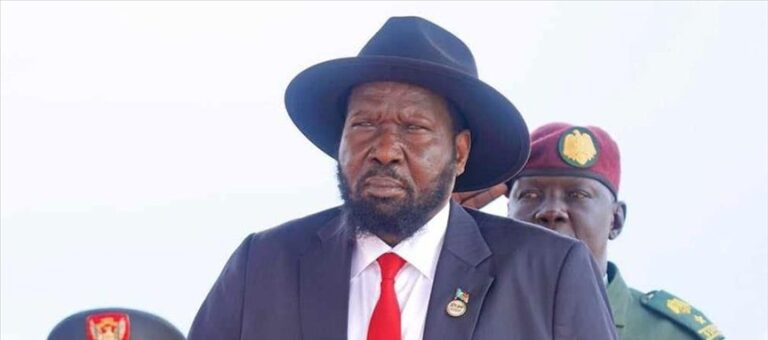A South Sudanese civil society activist has described President Salva Kiir’s decision to dismiss Vice President Benjamin Bol Mel as an effort to wrest control, reassert his authority, and discipline within the ruling party.
Ter Manyang Gatwech, the Executive Director of Centre for Peace and Advocacy, told Radio Tamazuj that the move reflects the president’s attempt to curb what he called “state-linked power networks” that had undermined centralised leadership.
“As a human rights activist, I see President Kiir’s move as part of an effort to reclaim authority that state-linked power networks had gradually diluted, what many refer to as the ‘state mafia,’” Gatwech said. “ Benjamin Bol Mel had grown increasingly powerful and, in some cases, appeared to act beyond collective party discipline.”
“His dismissal should serve as a lesson to those within the SPLM Party and those aspiring to leadership that political power must remain accountable to the state and not be personalised,” Manyang added.
He said the president’s decision may have been driven more by frustration than by political calculation, noting growing public dissatisfaction with delays in implementing the Revitalised Agreement on the Resolution of the Conflict in South Sudan (R-ARCSS).
“The dismissal can be seen as part of a broader attempt to restore confidence, order, and focus within the leadership and to signal renewed commitment to peace and stability,” he said, adding that Bol Mel had been linked to networks accused of obstructing reform efforts.
According to Manyang, the recent dismissal also highlights long-standing weaknesses in the peace process and divisions within the SPLM Party.
“What went wrong is the inconsistent and politicized implementation of the 2018 peace agreement, coupled with internal divisions and localized violence, such as the recent incidents in Nasir County, allegedly organized by individuals linked to Bol Mel’s camp,” he said.
He predicted further political reshuffling within the SPLM and security institutions as the president works to consolidate authority and restore cohesion.
“However, unless these moves are paired with genuine reforms and inclusive dialogue, the risk of further fragmentation within the ruling party remains high,” Manyang cautioned.
For his part, James Boboya Edmund, a policy and political analyst, welcomed Kiir’s decision to dismiss several senior government officials, describing it as a positive step toward restoring order and accountability in government.
Boboya, a governance expert, said the president’s move “has brought sanity and order into government.” He added that Kiir should now use his executive powers to tackle poverty, corruption, and poor governance.
“There has been breaking news that the president sacked several government officials from the Vice President to the head of the revenue authority,” he said. “I want to applaud the president for doing extremely well in bringing sanity and order to government.”
Boboya urged Kiir to take the reform momentum further by prioritizing the fight against corruption and promoting democracy.
“Enough is enough to corruption, enough to people using our taxpayers’ money for popularizing themselves,” he said, accusing some officials of looting billions of dollars from public resources.
The analyst also appealed to the president to consider national reconciliation, including extending a pardon to opposition leader Dr. Riek Machar and his allies, to form what he called “a new, inclusive government that can bring stability to South Sudan.”
According to Boboya, the recent changes have been widely welcomed by the public.
“Over 98 percent of the people celebrated throughout the night,” he said, likening the public reaction to the national celebrations that followed the country’s independence and the 2020 decision to reduce the number of states from 32 to 10.
He further called on Kiir to strengthen national institutions, unify the armed forces, and ensure that corrupt officials are held accountable. “Anybody who is corrupt needs to be removed and put in jail,” he said.
Boboya urged the president to engage civil society groups in dialogue, work with the international community to attract investment, and focus on long-term economic reforms to improve the living conditions of South Sudanese citizens.




